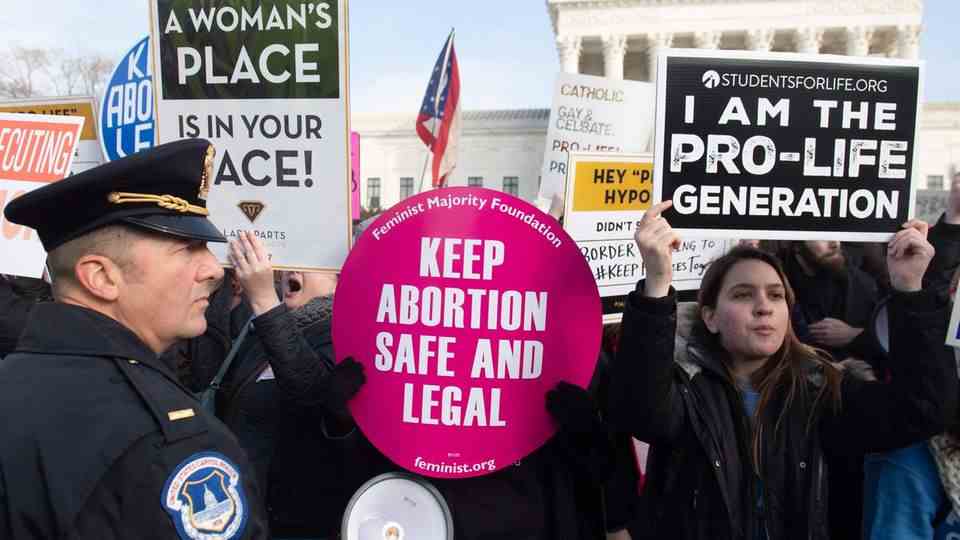Heartbeat Law
Texan accused of murder by “self-induced abortion” – she was only released the following day
“Don’t mess with Texas women”: Demonstrators protested against the abortion law in Texas in front of the US Capitol in Austin last May
© Sergio Flores / Getty Images
A Texas woman charged with murder over an abortion has since been released. However, women’s rights organizations warn that cases like this could increase in the future.
An official with the South Texas Sheriff’s Office announced Saturday the arrest of a 26-year-old woman for murder in connection with the “death of a person from a self-induced abortion.” The woman, Lizelle H., was arrested the previous day and is in Starr County been arrested.
According to a statement by the Frontera Fund, an organization for abortion rights, H. was not released on bail until the following day. This was set at $500,000 (approximately €459,000). The circumstances of the case are dubious insofar as it was not clear whether H. performed an abortion (on himself) or – which makes a legal difference – is said to have supported an abortion (of another person). In any case, the sheriff’s office refers to a recent tightening of the abortion law in Texas.
Current Heartbeat Law in Texas
The Texas abortion law, the Heartbeat Law, prohibits abortion after the sixth week of pregnancy. It got its name because abortions are forbidden as soon as the rhythmic contraction of the fetal heart tissue can be detected. This could affect doctors and nursing staff, for example, but also parents who provide their child with money for an abortion or someone who drives a woman to an abortion clinic. The law also applies to pregnancies resulting from incest or rape. There is only one exception for medical emergencies.

However, the Heartbeat Law essentially leaves enforcement to its citizens by offering anyone a reward of at least $10,000 for a “successful” complaint of violating the law. Women’s rights organizations therefore fear a real hunt for everyone who supports pregnant women with abortions. In the event of a conviction, the reporting citizens will receive at least $10,000, which must be paid by the convict. But this is precisely the crux of the matter in H’s case. By taking the “reward” route, Texas chose the civil route in dealing with abortions and specifically not the criminal route, which would be relevant for acts such as murder, etc.
However, according to the “New York Times”, H. was charged with murder after she “willfully and knowingly” caused a person’s death through a self-induced abortion. After some back and forth, H. was released the following day when the local prosecutor finally dropped the case. “The [strafrechtlichen] Issues related to this matter are clearly moot,” said Prosecutor Gocha Allen Ramirez. “However, based on Texas law and the facts presented, this is not a criminal matter.” The prosecutor added, “Ms. Herrera did not commit a criminal offense under the laws of the state of Texas.”
Officials may have violated criminal laws
Ramirez’s testimony correlates with the view of legal experts and women’s rights activists, who say Herrera’s arrest should not have taken place in the first place. Sheriff’s Office officers may now face criminal charges themselves for depriving H. of her liberty.
“There is no law in Texas that allows treating people who have had a miscarriage, stillbirth or abortion as a murderer,” Lynn Paltrow, executive director of the National Advocates for Pregnant Women, told The Guardian. In any case, H’s very obscure case will not be the last to deal with the interpretation of the extremely controversial Heartbeat Law in Texas.
Sources: “New York Times”, “Guardians”, Frontera Fund / Facebook


